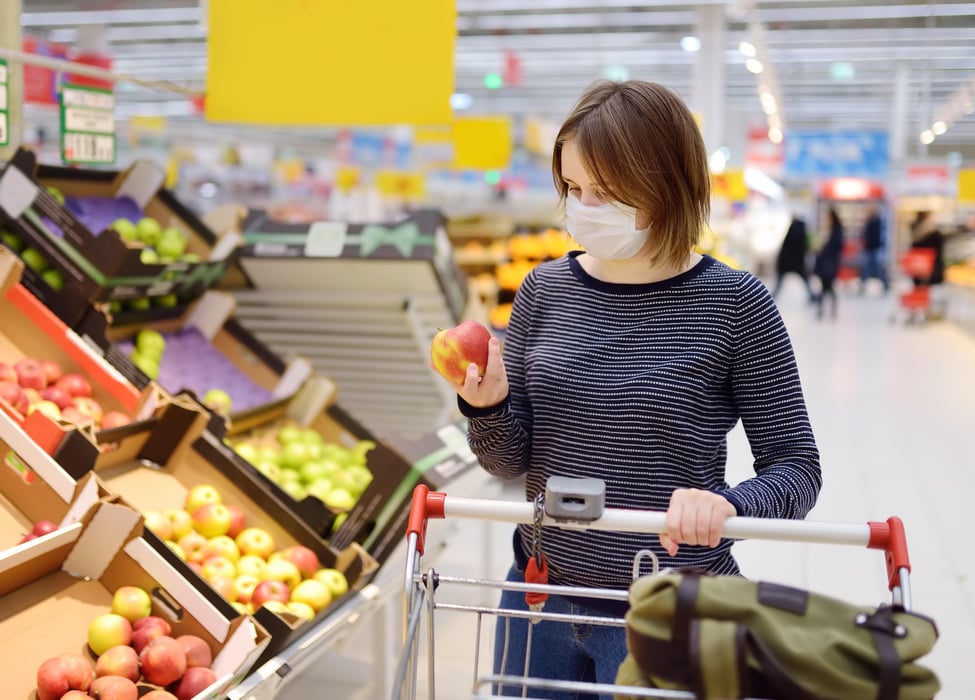Worried About Omicron? Expert Offers Tips on Going Out Safely

FRIDAY, Jan. 14, 2022 (HealthDay News) -- As the Omicron variant rages across the United States, an expert outlines how to reduce your risk of getting infected with COVID-19.
Be cautious when it comes to social activities and consider the amount of risk you're willing to accept in order to get together with others, said Dr. Michael Lin, an infectious disease specialist and associate professor at Rush University Medical Center in Chicago.
"Any time people are gathering indoors, there's an inherent risk that the virus will spread," Lin said in a hospital news release.
You can reduce your risk of infection and serious illness by limiting yourself to small gatherings and making sure everyone is fully vaccinated and boosted, if eligible.
At indoor gatherings, anyone age 2 or older should wear a well-fitted mask. Wearing a mask is especially important if you have a weak immune system, even if you are vaccinated.
"We know that if you are immunocompromised, you may not be fully protected even if you did get your shots," Lin said.
It's also a good idea to take an at-home COVID-19 test before getting together with others, and anyone with symptoms such as a cough or runny nose should avoid socializing.
The safest way to connect with others is to hold a virtual gathering.
If you're thinking about going to a restaurant, you should:
- Avoid packed, poorly ventilated places where you can't social distance.
- Choose times when it won’t be crowded.
- If there are too many people, find another restaurant or opt for carryout.
- Wear a well-fitted mask when you are not eating and drinking.
- Wash your hands frequently or use hand sanitizer.
- Bring your vaccination card and/or keep a copy on your phone if you’re in a community that requires patrons to show proof they've been vaccinated.
- Choose your dinner companions carefully. Most of the risk comes not from diners at other tables necessarily, but from those who are sitting at your table if they are from other households.
Shopping for groceries and running other errands tend to be less risky than eating at a restaurant. If you're at risk for severe illness, consider going out when stores are least busy, such as early morning, Lin suggested.
Travel poses challenges because it's difficult to stay at least 6 feet apart from strangers in airports, train stations, planes and trains. You also need to assess the risk at your destination. The U.S. Centers for Disease Control and Prevention offers county-by-county COVID-19 rates.
Whatever you do, the best protection during the Omicron surge is to get vaccinated and boosted, but it’s important to remember that vaccines "are not 100% effective, which is why we are seeing some breakthrough infections, especially with the Omicron variant," Lin said.
"But in general, breakthrough infections are mild for those who are vaccinated, and vaccines do an excellent job of preventing severe infections and death," he added.
More information
For more on protecting yourself and others from COVID-19, see the U.S. Centers for Disease Control and Prevention.
SOURCE: Rush University Medical Center, news release, Jan. 12, 2022
Related Posts
U.S. COVID Hospitalizations Reach Record Low
TUESDAY, May 30, 2023 (HealthDay News) – COVID-19 hospitalizations in the United...
Hospitalizing the Unvaccinated Has Cost U.S. Nearly $6 Billion
THURSDAY, Sept. 16, 2021 (HealthDay News) -- The cost of providing hospital care...
Un estudio del cerebro muestra cómo el fentanilo acaba con la vida
MIÉRCOLES, 31 de agosto de 2022 (HealthDay News) -- El fentanilo, el opioide...
Intensive BP Targets Cut Risk for Cardiac Conduction Disease
FRIDAY, May 5, 2023 (HealthDay News) -- Intensive blood pressure control is...
